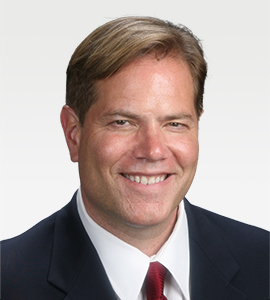The demand for acute behavioral healthcare is growing at an incredible rate and is only being accelerated by the coronavirus pandemic. Between 2007 and 2016, more than 8% of ED visits nationwide were for psychiatric or substance use diagnoses. In recent months, this percentage is increasing due to the financial insecurity, health worries, and new work and family responsibilities that have caused considerable stress for many of us. At the same time, the closures of schools, businesses, medical offices, and community programs have cut us off from the support systems that could help us better weather this storm.
Sadly, this bump in demand may represent the tip of a massive iceberg. The trauma of a disaster often lingers in populations years after the initial crisis subsides. Five years after Hurricane Katrina, the survivor population was still experiencing elevated prevalence of mental health disorders. And the prolonged nature of the current pandemic could make it even more devastating than a typical time-limited disaster.
Unfortunately, we’re also witnessing a shocking failure of our behavioral health safety net. Too many people have simply fallen out of mental health and substance abuse treatment in recent months. COVID-19 has underscored just how unfriendly our current system is to vulnerable patients. And given the growing needs we face, this must change.

In this post, we’ll talk about some ways acute psychiatry can evolve to improve quality and access, especially for vulnerable patients.
Telepsychiatry and the Crumbling of a Provider-Centric Paradigm
Until February 2020, the prevailing healthcare paradigm required patients to travel to doctors’ offices, clinics, and hospitals for care. Most front-line providers are all-too-familiar with the downsides of this model:
- Inequitable. Patients who lack the resources, safety, or stability to manage in-person appointments often end up in the emergency room — or forego care altogether.
- Inefficient. Why put the responsibility of choosing the right care setting on the patient rather than a medical professional?
- Costly. Much of what happens in an expensive specialist visit could be handled in the primary care setting with a specialist consulting.
- Unsustainable. Our population is growing faster than we can build hospitals and train new providers (especially psychiatrists).
COVID-19 has turned this provider-centric paradigm on its head. The past few months have shown us just how much acute care can be delivered beyond the hospital walls.
Luckily, psychiatry was one of a handful of specialties that embraced virtual care early. In response to a deepening psychiatrist shortage, we used telehealth to consult with emergency physicians and hospitalists, collaborate with county crisis teams, virtually staff short-term crisis (EmPath) units, and serve patients in shortage areas. We believe the next evolution of acute psychiatry will be toward team- and community-based management of patients.
“We can’t practice good emergency medicine, hospital medicine, neurology, or any other specialty without meeting patients’ mental health and substance abuse needs.”
Scott Zeller, MD
Connecting Psychiatric Care and Medical Care
One of the most exciting and invigorating developments we're seeing is the increased integration of psychiatry into general medicine. This is a necessary shift away from the stigmatization of mental healthcare, and its need is confirmed again by a recent study that shows patients with behavioral health conditions account for 57% of medical costs.
We believe psychiatry will continue to evolve toward team- and community-based management of patients. Under this model, a psychiatric nurse, advanced provider, or social worker serves as the primary provider and checks in regularly with a patient via videoconference. This provider is supported by a care team, including a psychiatrist who reviews records, approves therapies, and makes recommendations and will see the patient personally whenever appropriate. This team-based approach has commonly been reserved for only the most severely and persistently mentally ill. We imagine expanding this model will help care reach more patients. It permits services to be delivered where patients are both literally – and figuratively.
This team-based virtual model also lends itself to care navigation, a practice that improves outcomes while reducing costs. Navigation helps patients access the right care at the right time, schedule virtual and in-person appointments, and address social determinants of health — all while keeping a care team updated.
Historically, patients who shared their symptoms of depression with an internal medicine provider may have been prescribed an antidepressant and perhaps given a referral to a psychologist or psychiatrist. Now, patient care navigation makes this a seamless experience. The care navigator is responsible for the ongoing treatment and care of the whole patient, not just the individual symptoms treated in an ad hoc manner. They also help patients communicate more effectively with their healthcare providers, so they are better informed and empowered to make decisions about their total care.
Shifting Behavioral Health Care Outside the ED with Emergency Psychiatry
For many communities, the emergency department (ED) is the sole provider of mental health and substance abuse care. Unfortunately, most departments are poorly equipped to handle behavioral health emergencies. As a result, many of these patients end up “boarding” for extended periods until an inpatient psychiatric bed becomes available.
On top of harming patients, boarding is a major cause of ED crowding. In some departments, psychiatric boarders routinely occupy 20% of beds. This is a huge issue for hospitals seeking to expand capacity ahead of a potential COVID-19 surge.
One promising solution to this dilemma is the EmPath Unit, a short stay-unit separate from the ED. EmPath operates on the premise that most psychiatric ED patients require short-term care, not inpatient psychiatric hospitalization. Incoming EmPath patients receive a timely psychiatric evaluation followed by compassionate, holistic, trauma-informed care in a therapeutic and homelike setting. More than 70% of EmPath patients are stabilized and discharged to a lower level of care within 24 hours.
Studies show that EmPath units are extremely effective at reducing ED boarding. They’re also quite cost-effective and face fewer regulatory barriers than standalone community programs.
At Vituity, we’ve seen interest in EmPath units grow steadily in recent years, but the pandemic has accelerated demand. We therefore predict that this model will become the standard for acute behavioral healthcare in the future.
Impact on the Practice of Psychiatry
It’s crucial that during this period of unprecedented disruption, psychiatrists lead the transformation of care delivery. If not, we’ll be at the mercy of other stakeholders who may not have the best interests of patients and providers at heart.
However, asking psychiatrists to step up and revolutionize care could be a tall order. A survey conducted in January 2020 found that 35% of psychiatrists experience symptoms of burnout. While that’s slightly better than the average for all physicians, it’s still cause for concern — especially given the pressures the pandemic and subsequent recession have heaped on providers.
Fortunately, our specialty is already evolving in a direction that may energize and engage providers. While team-based virtual care requires new skills and attitudes, it also allows us to have greater positive impacts on more patients. And when we do see patients in-person, we can rest assured that they really need this higher level of care.
Technology can also be leveraged to enhance the provider and patient experience. Advances in data analytics and natural language processing enable psychiatrists to see more patients and minimize many of the administrative hurdles that typically result from increased visits. Both software and hardware solutions should be considered, and there are myriad options available based on practice and community needs. Partnering with technology companies is key to balance the clinical expertise of acute psychiatrists with the incorporation of new models of care delivery.
Organizations can help by actively engaging psychiatrists in the change process. Psychiatrists intimately understand both the problems with our current system and potential solutions. Change-minded health systems would therefore be wise to harness their ingenuity, energy, and leadership.
Leading the Future of Psychiatry with Vituity
At Vituity, we believe psychiatry is integral to quality medical care. We can’t practice good emergency medicine, hospital medicine, neurology, or any other specialty without meeting patients’ mental health and substance abuse needs.
We also believe that hospitals are essential providers of behavioral health services, and that they help in ways community-based programs cannot. We therefore actively embrace the current disruption as an opportunity to transform care for this vulnerable population.
Vituity's front-line psychiatrists are our greatest champions for change. As shared owners in our practice, we have the freedom and support to create our own futures. Here are just a few of the ways we’re transforming care for the benefit of patients everywhere:
- Helping hospitals create and staff new EmPath units (demand is growing fast).
- Partnering with tech companies to bring care to more patients exactly where they are.
- Rapidly expanding our telehealth capabilities to serve more patients and provider teams as the pandemic unfolds.
- Working within our multispecialty practices to provide seamless care continuity in an increasingly virtual world.
- Supporting front-line providers in bringing their care delivery innovations to life. One recent example is an application that largely automates psychiatric admissions from the ED.
With our engaged leadership and robust practice management support, Vituity frees up physicians to do what they do best: caring for patients and transforming the future of care.
Explore our job opportunities and deliver compassionate behavior healthcare with Vituity.

























